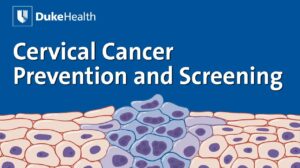NEW YORK (Reuters Health) – Survival among women diagnosed with breast cancer when they are pregnant is comparable to that for nonpregnant women of reproductive age treated for breast cancer, according to a multicenter study.
“This information is important when patients are counseled and supports the option to start treatment with continuation of pregnancy,” the researchers comment in their report in the Journal of Clinical Oncology online April 22.
They explain that up to 2.9% of all breast cancers occur during pregnancy. “It was long thought that pregnancy worsened the prognosis of breast cancer and this was used as an argument to terminate the pregnancy,” lead author Dr. Frederic Amant commented in an email to Reuters Health.
Given the current results showing that the prognosis is similar for pregnant and nonpregnat women, “termination of pregnancy is thus not needed,” he continued. “Instead, we advocate a treatment strategy that sticks to standard treatment. This is the best guarantee for an optimal outcome. This treatment includes the administration of chemotherapy which we’ve shown to be reassuring regarding fetal outcome.”
For the study, Dr. Amant, with University Hospitals Leuven, Belgium, and colleagues compiled data from two registries on 311 women with breast cancer during pregnancy and compared outcomes to those among 865 nonpregnant patients, age 45 years or younger, with stage I to III disease.
Nearly all patients underwent breast-conserving surgery or mastectomy. All but four of the pregnant patients received chemotherapy — 200 of them during pregnancy – while 75% of the comparison group did so.
During a median follow-up of 61 months, 14% of pregnant patients died compared to 12% of the nonpregnant women, and survival was not significantly different between the two groups. With pregnancy, the adjusted hazard ratio for disease-free survival was 1.34 (p=0.14), while for overall survival it was 1.19 (p=0.51), the investigators found.
They calculated that the 5-year disease-free survival rate for pregnant women would have increased from 65% to 71% had they not been pregnant, and that 5-year overall survival would have gone from 78% to 81%.
As Dr. Amant mentioned, his team has previously reported on pregnancy outcomes in the same cohort. “Chemotherapy exposure during the second and third trimesters of pregnancy did not impair neonatal outcome,” they note, and the rate of congenital malformations was not increased.
In a paper published in February, the researchers reported that an interim analysis of long-term assessments of children exposed to chemotherapy in utero did not show sequelae.
Still, Dr. Amant cautioned in his email, “It appears that chemotherapy administration during pregnancy may result in lower birth weight and slightly increases preterm labour and preterm rupture of the membranes. This is a point of attention for obstetricians. Thus, we consider it as a high-risk pregnancy and advocate follow up of the pregnancy in a high-risk unit. Centralization of treatment in this complex situation is highly recommended.”
SOURCE: Prognosis of Women With Primary Breast Cancer Diagnosed During Pregnancy: Results From an International Collaborative Study
J Clin Oncol 2013;31.




